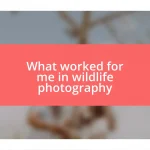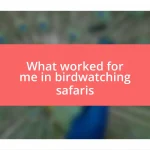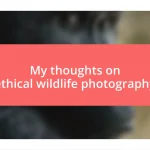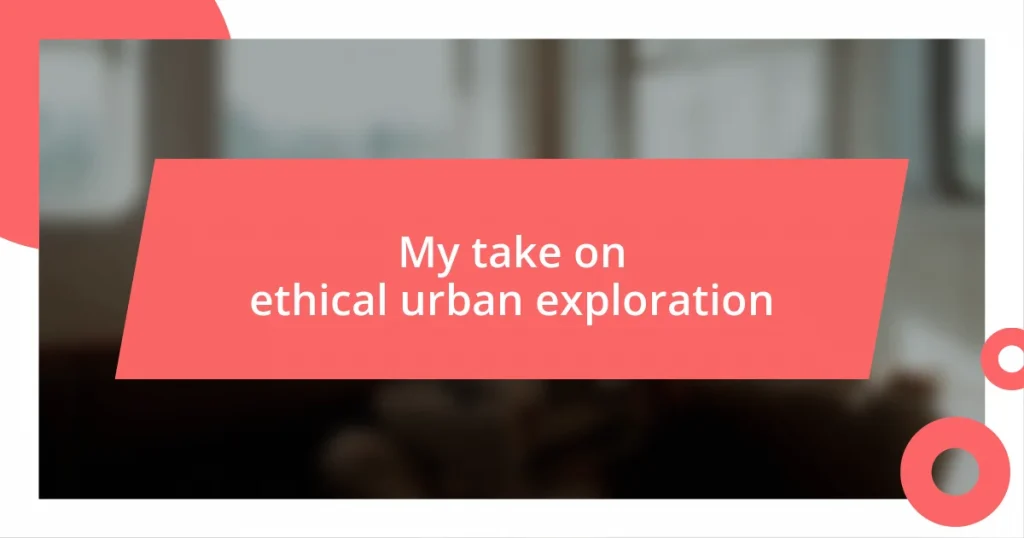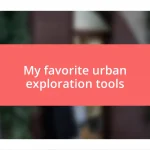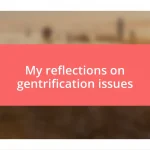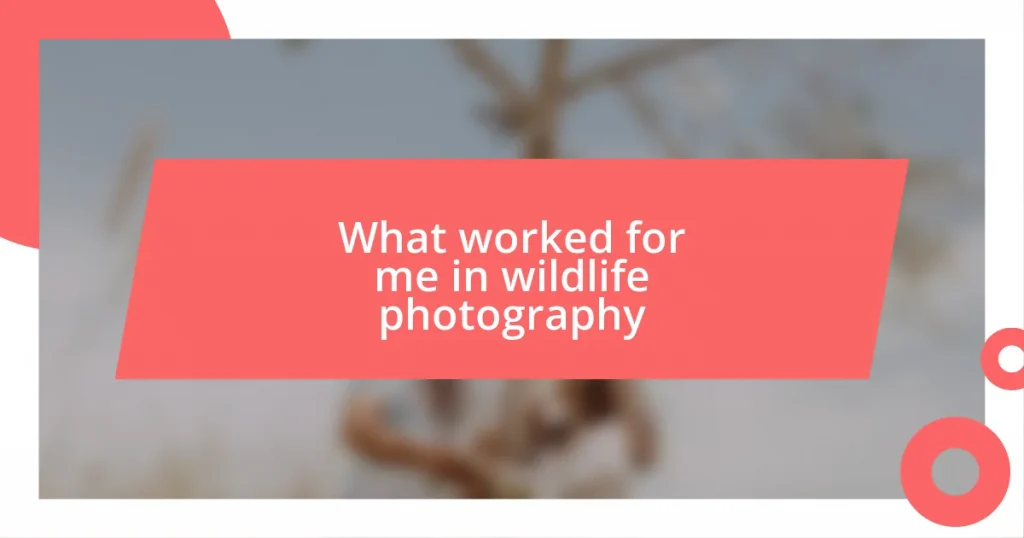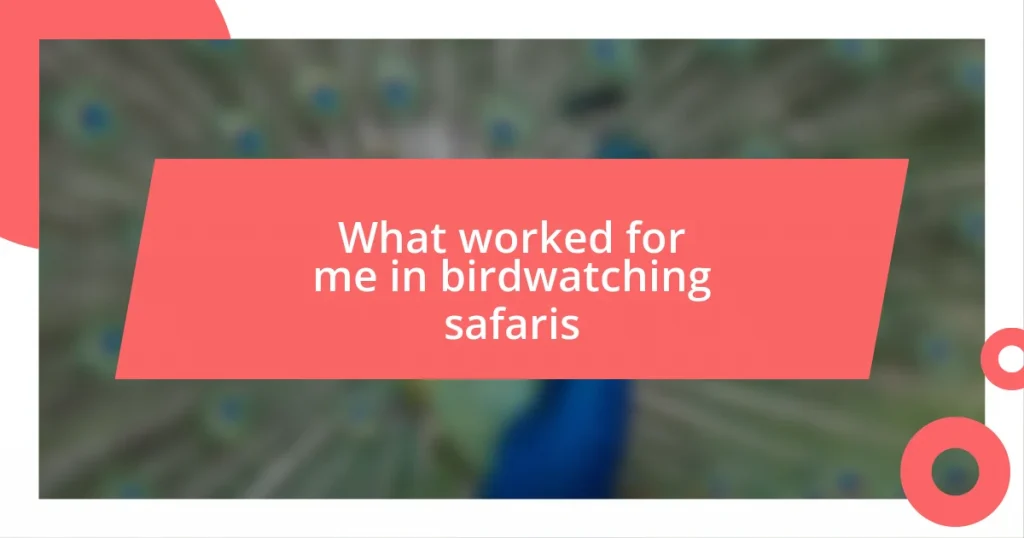Key takeaways:
- Urban exploration ethics emphasize the importance of respecting history, local communities, and property rights while navigating curiosity and adventure.
- The evolution of urban exploration from a curiosity-driven movement to a community-focused subculture highlights the need for shared responsibility and ethical considerations.
- Building a passionate community around urban exploration fosters open dialogue, mutual respect, and the mentorship of new explorers in ethical practices and safety measures.
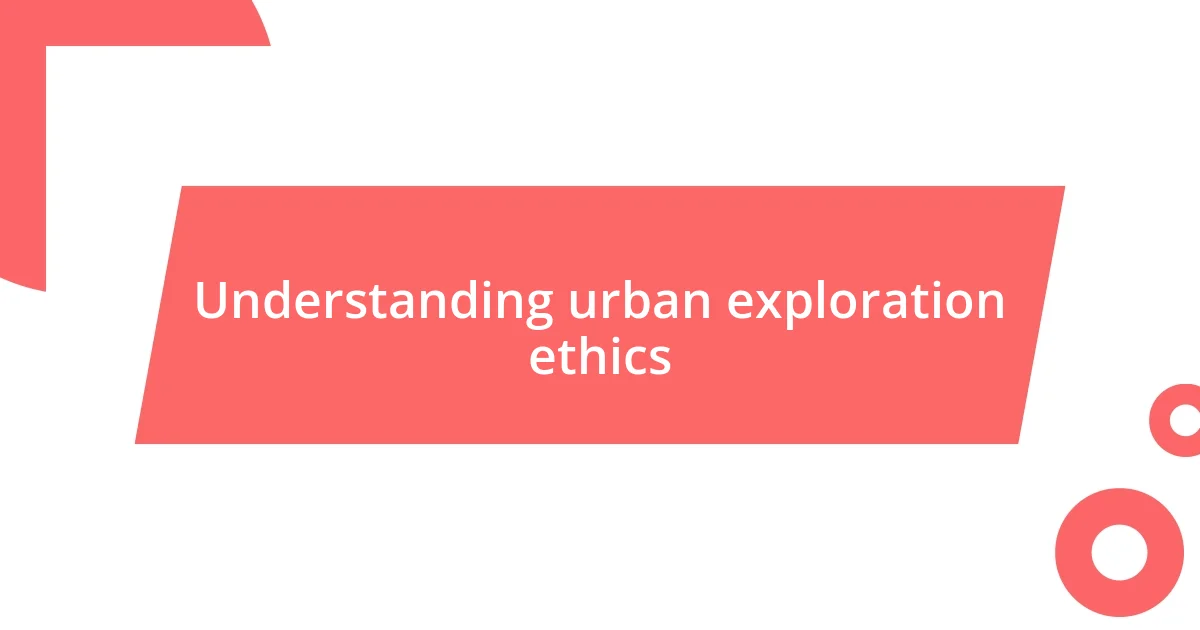
Understanding urban exploration ethics
Urban exploration, or “urbex,” ignites a passionate debate around ethics. As I’ve roamed through abandoned spaces, I often ponder, what does it truly mean to respect the history of these places? There’s a fine line between curiosity and trespassing, and I try to navigate by reflecting on the impact my presence might have—both on the location and its local community.
For instance, I once stumbled upon an old factory, its walls echoing with stories of the past. Feeling the weight of its history, I hesitated before stepping inside. It struck me then—shouldn’t we, as explorers, strive to honor the memory of those who came before us? Consider this: by documenting and sharing these experiences, are we preserving or exploiting the narratives woven into these forgotten spaces?
I believe ethical urban exploration is about fostering a sense of responsibility. When I approach a site, I educate myself on its background and respect any existing boundaries. Have you ever considered how your actions might ripple out, affecting others? Each explorer has the power to be a steward of history, reflecting on how our choices can protect or diminish these fragile remnants of our urban past.
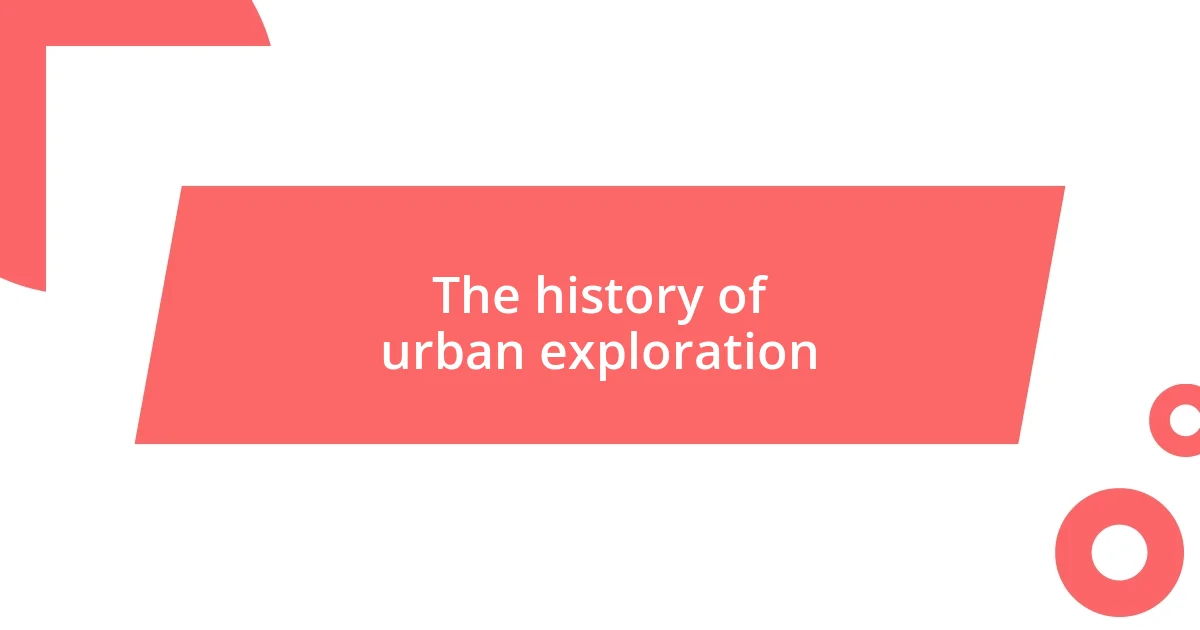
The history of urban exploration
Urban exploration has its roots in the early 20th century, emerging as a counterculture movement. I find it fascinating to see how this activity was initially driven by a collective curiosity about forgotten places. It was not unusual for explorers to document their findings through photography, bringing to light the beauty of decay—something I too have embraced on my journeys. For instance, when I discovered an old subway station hidden beneath the city, the remnants of its once vibrant life felt like whispers from the past, urging me to capture their essence.
As the years progressed, urban exploration morphed into a subculture, fueled largely by the rise of the internet in the late ’90s and early 2000s. I remember the excitement I felt when I first joined an online forum dedicated to urbex. The shared stories, along with the thrilling tales of escapades from other adventurers, ignited my passion even further. It was in those moments I understood the importance of community among explorers—guidance, warnings, and encouragement flowed freely, creating a shared responsibility to preserve these sights.
In the past few decades, urban exploration has evolved beyond mere adventure into a complex activity filled with ethical considerations. I often reflect on how this shift reflects wider societal norms around respect for private property and the outdoor ethics we frequently discuss today. My own encounters with security guards or local residents have left me grappling with the questions of legality versus respect. Have you ever been torn between your desire to explore and the need to honor the space you’re in? I find these moments crucial for personal growth, reminding me that each destination holds not just stories of the past but responsibilities for the future.
| Period | Description |
|---|---|
| Early 20th Century | Urban exploration begins as a curiosity-driven movement with a focus on documenting forgotten places. |
| Late 1990s to Early 2000s | The rise of the internet fosters a community aspect, encouraging explorers to share experiences and safety tips. |
| Recent Decades | Urban exploration becomes intertwined with ethical considerations, balancing adventure with respect for property and history. |
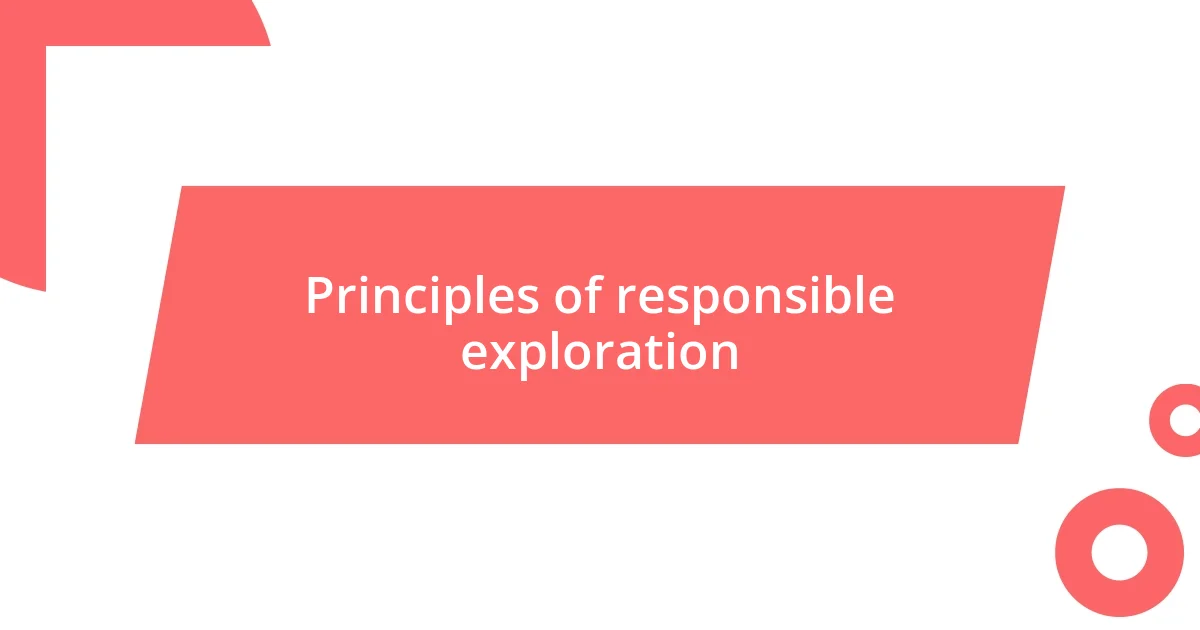
Principles of responsible exploration
Responsible urban exploration requires a thoughtful approach to ensure that our curiosity does not come at the expense of respect. I remember one urban adventure where I came across a mural in an abandoned warehouse. Instead of tagging it or taking something from the space, I made it a point to appreciate and photograph it respectfully. It felt vital to acknowledge the artists who once poured their creativity into that wall, and this experience reinforced my belief that every site tells a story. So, how do we navigate this intricate web of ethics in our exploration?
Here are some principles I believe in:
- Know the space: Research the history and significance before you go.
- Be discreet: Avoid loud activities that could disturb nearby residents or wildlife.
- Respect boundaries: If there are no trespassing signs, the message is clear. Honor it.
- Leave no trace: Take nothing but memories; leave nothing but footprints.
- Engage with locals: Learn from the community about the site’s history and significance.
- Share responsibly: When documenting, consider how your portrayal might impact future exploration.
Embracing these principles not only enhances our experiences but fosters a genuine connection to the places we visit. Each choice we make sends ripples of influence that resonate far beyond our fleeting presence.

Assessing private property rights
The issue of private property rights in urban exploration often brings up intense emotions for me. I’ve encountered locked gates and no trespassing signs, and while there’s an adrenaline rush in bypassing them, there’s also a sinking feeling of guilt. I’ve often wondered: am I crossing a line that shouldn’t be crossed? Respecting these boundaries isn’t just a legal obligation; it’s a moral one that reflects the values we hold in our society.
Once, I found myself in a disused factory that had a “no trespassing” sign prominently displayed. The allure of its crumbling walls was strong, yet I hesitated. My heart raced as I weighed the thrill of exploration against the potential consequences. The thought of someone pouring their heart into this space, only for it to be disrespected by someone like me, led me to capture its beauty from outside instead. This choice deepened my understanding of property rights and made me appreciate the histories tied to each place.
Every time I think about private property rights, I remind myself that urban exploration is not just about discovery; it’s about stewardship. Have I ever considered how my actions could affect the local community’s relationship with these spaces? It’s critical to engage with those narratives, recognizing the significance of ownership and inviting respect into our explorative journeys. The more I explore, the more I realize that genuine connection often requires us to acknowledge and honor boundaries, both legal and personal.
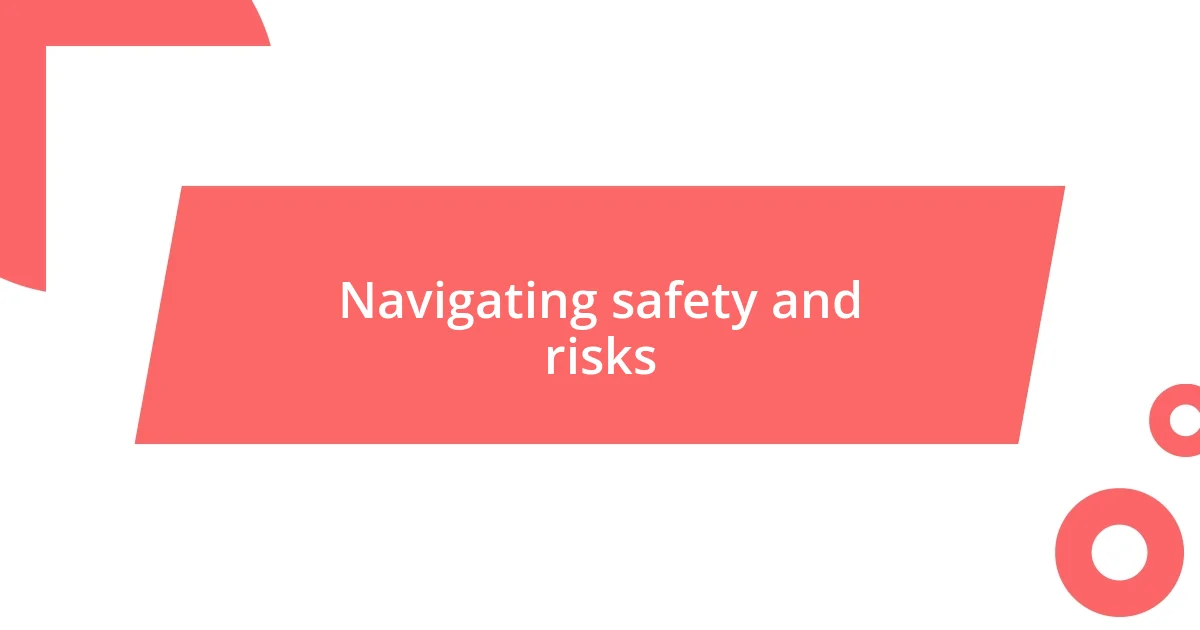
Navigating safety and risks
When it comes to navigating safety and risks during urban exploration, my experiences have taught me to always prioritize personal safety. I still remember the chill that ran down my spine when I stepped into an abandoned subway tunnel. The atmosphere was electric, but the presence of broken glass and the potential for unstable structures was a constant reminder that one wrong step could lead to injury. I always assess my surroundings first; it’s a small habit that has made a big difference.
Being aware of your physical limits is just as important. I’ve had moments where the thrill of discovery made me push forward, only to realize I was venturing too far into risky territory. During one particularly ambitious outing, I climbed onto a rooftop to capture the skyline, but halfway up, I felt a moment of doubt. Was that extra shot worth risking a fall? I decided to prioritize my safety and backed off. Since then, I’ve learned to balance curiosity with caution, ensuring that every exploration remains a safe and enjoyable adventure.
Equally vital is staying informed about the spaces I visit. There was an occasion when I stumbled upon a group of fellow explorers engaged in an underground graffiti event. It looked vibrant and captivating, but I quickly noticed the potential legal ramifications and safety hazards involved. Engaging in discussions about local laws and practices has become part of my exploration routine. It’s not just about going where the adventure leads; it’s also about being smart and making informed decisions. After all, the thrill of exploration shouldn’t come with unnecessary risks.
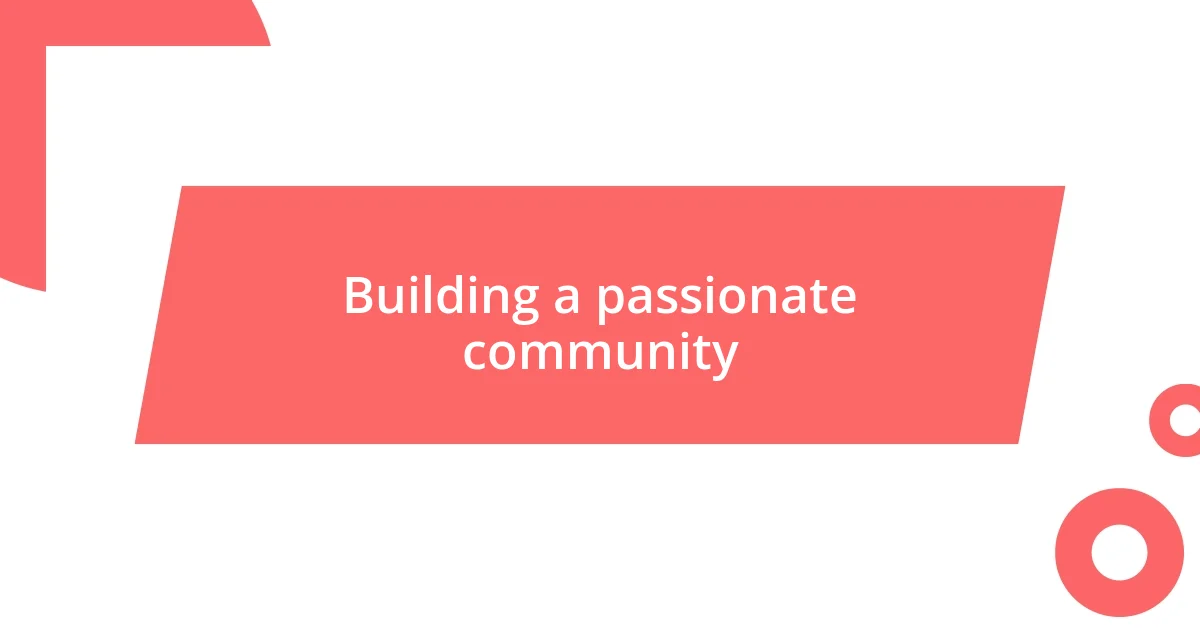
Building a passionate community
Building a passionate community around urban exploration requires a shared commitment to ethics and safety. In one of my early explorations, I discovered that connecting with others who share a similar passion transforms solitary adventures into collective experiences. We exchanged stories, and I felt an exhilarating sense of belonging. Have you ever felt the magic of a group when you all share a common goal? It’s this spirit that motivates us to respect the spaces we explore.
As I navigated through various urban landscapes, I noticed that the most vibrant communities are built on trust and respect. For instance, I often attend local meetups where we share tips not only about great locations but also about the ethical considerations of our adventures. This dialogue fosters awareness and raises the bar for responsible exploration. Isn’t it remarkable how open conversations lead to a deeper understanding of our communal values? Every time we gather, I leave feeling rejuvenated and inspired to create positive impact within our exploratory circles.
Moreover, fostering a passionate community means actively engaging newcomers and nurturing their respect for these spaces. I remember meeting a young explorer who was eager to dive into the world of urban exploration. Instead of leaving him to fend for himself, I took the time to share my experiences and the importance of ethical practices. Helping him understand why it matters to heed property rights and embrace safe exploration not only benefited him but strengthened our community. How rewarding is it to witness a new generation of explorers equipped with knowledge and ethical considerations? It ignites hope for the future of urban exploration!
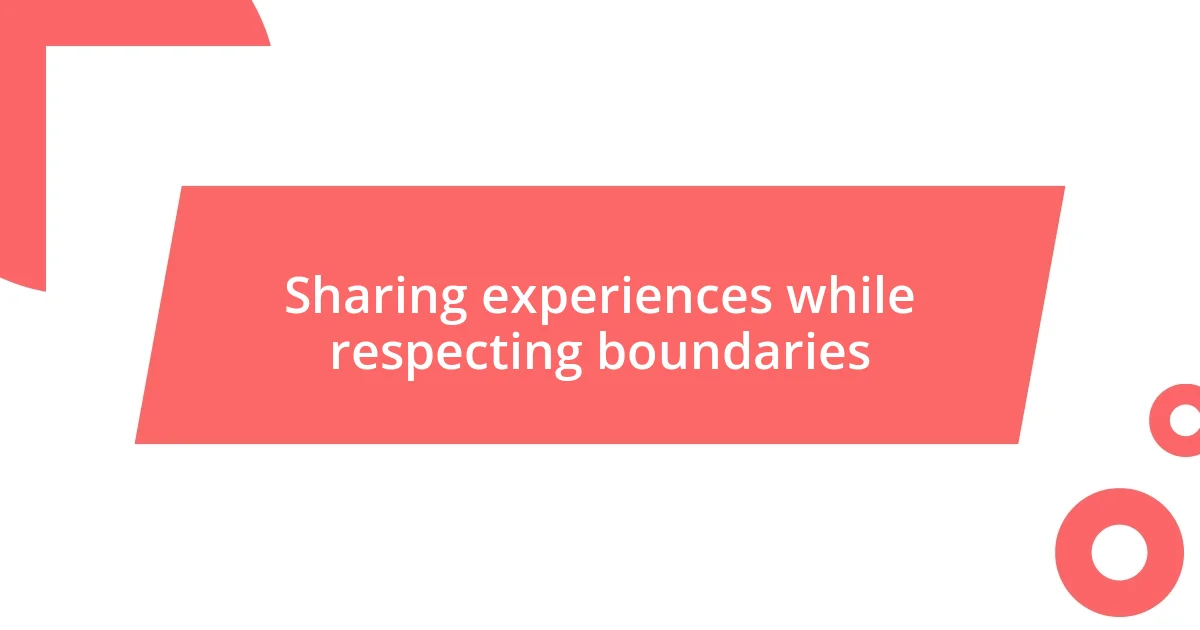
Sharing experiences while respecting boundaries
Sharing experiences in urban exploration can be a beautiful way to connect with others, but it’s crucial to respect boundaries, both physical and ethical. I recall an outing with a group where we discovered an incredible abandoned factory. The excitement was palpable, but as we approached the entrance, we noticed “No Trespassing” signs. It was tempting to ignore them, considering how stunning the location was, but we paused and talked it over. In that moment, we became a team that valued respect over thrill. I can’t help but wonder, how often do we choose integrity over the immediate allure of exploration?
Respecting boundaries also means understanding the history and significance of the places we explore. On one occasion, I stumbled upon a site with rich historical ties to the community. As I explored, I realized that my presence could either honor or disrespect that history. It reminded me of the importance of educating myself not just about the physical space, but also about its past. This awareness allows us to share experiences that uplift and embrace the stories woven into these environments. Have you ever learned something profound about a place while exploring? That revelation can turn a simple adventure into a meaningful connection with a location’s heritage.
Ultimately, the spirit of urban exploration thrives when we engage with others while maintaining respect for both people and places. I remember joining an online forum where seasoned explorers shared tips on how to navigate ethical dilemmas. Listening to their varied perspectives deepened my understanding and encouraged me to reflect on my own practices. It was there that I learned the mantra, “Leave no trace,” which doesn’t just apply to physical locations but also to the relationships we cultivate. How can we ensure that our adventures foster positivity rather than conflict? I believe it starts with sharing our experiences while shining a light on the values that guide us along the way.
